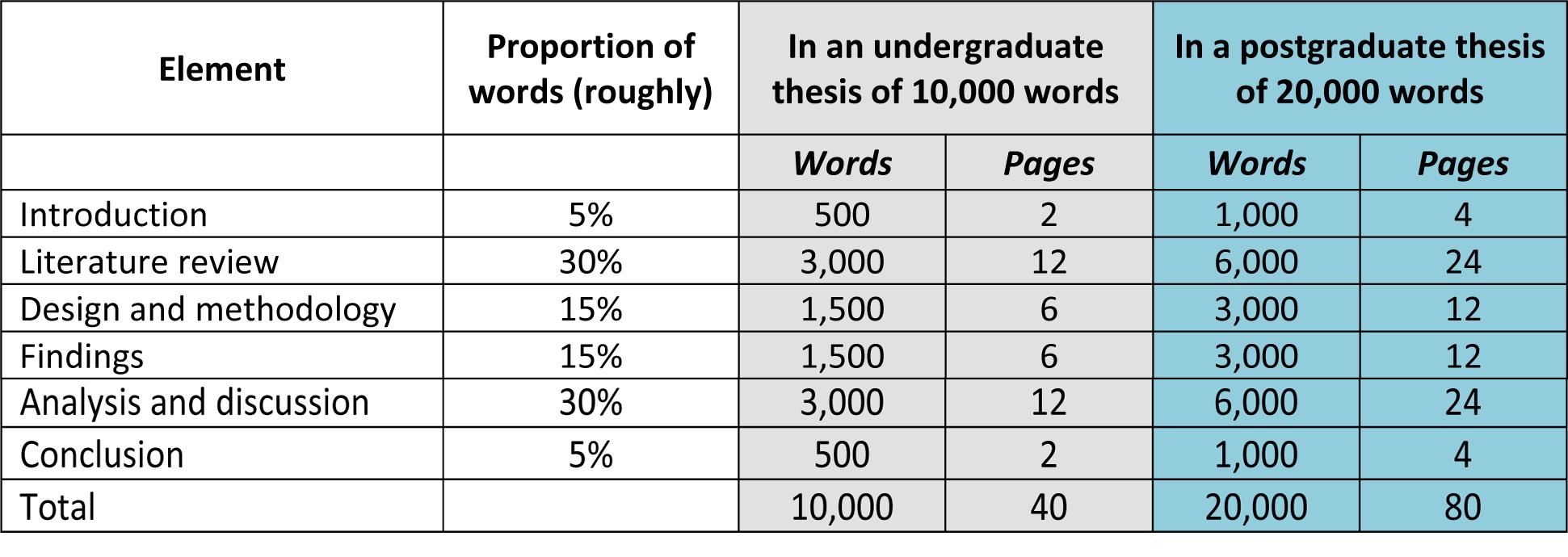Managing Your Dissertation Word Count: A Guide for UK Students
One of the most common challenges students face when writing a dissertation is managing the word count effectively. Whether you write too much or fall short of the required length, knowing how to structure your dissertation word count is essential for success.
Why Understanding the Dissertation Word Count Matters
The word count breakdown for a dissertation is crucial for planning and staying on track. A clear understanding of how many words each chapter should contain helps you allocate time and resources efficiently, avoiding last-minute stress.
Dissertation Word Count Guidelines in the UK
Universities in the UK set specific word limits for dissertations, varying by academic level:
- Undergraduate Dissertation Word Count
Typically ranges from 8,000 to 12,000 words, depending on the discipline and university guidelines. - Master’s Dissertation Word Count
Often between 10,000 and 15,000 words, though some programs may allow up to 20,000–30,000 words, particularly for research-intensive fields. - PhD Dissertation Word Count
Generally, PhD dissertations are the most extensive, ranging from 60,000 to 100,000 words, depending on the subject and research depth.

Don’t risk your degree by writing your dissertation without enough guidance! Let our experts handle it for you and ensure success. Place your order now and get discount – limited-time offer!
But despite the total dissertation word count allotted, the main problem begins when students have to break down that word ratio into the headings of the dissertation. Here they make the common error of writing more words for a section that can be explained in less count and less count for a section that deserves more words.
How to Stay Within the Dissertation Word Count
A common solution is to use a dissertation word count breakdown calculator available online. These tools allow you to enter your degree level and overall word count, giving you an estimated breakdown for each section.
However, not all online tools are accurate. So, it’s essential to find a reliable calculator that provides correct word distribution. Here’s a quick guide on how to allocate your dissertation word count UK properly.
Dissertation Word Count Breakdown
If you’re working with a 10,000-word dissertation, here’s a recommended word count breakdown for each section:
- Introduction (10% – 1000 words): The introduction sets the stage for your research. It explains why your topic matters and what you aim to achieve. You should dedicate about 10% of your total word count to this section.
- Literature Review (25% – 2500 words): The literature review is a critical part of your dissertation, where you discuss previous studies and theories related to your topic. This section should take up around 25% of your word count.
- Methodology (15-20% – 1500 to 2000 words): The methodology chapter explains how you conducted your research. This should be about 15-20% of your total word count.
- Data Presentation (15% – 1500 words): In this section, you present the data you’ve collected through your research. Dedicate roughly 15% of your dissertation to this.
- Discussion and Analysis (15-20% – 1500 to 2000 words): This section is where you interpret your findings and explain their importance. You’ll want to allocate 15-20% of your word count to this part.
- Conclusion and Recommendations (15% – 1500 words): In the final chapter, you summarize your research and offer recommendations. This section should take up the remaining 15% of your word count.
Note: Appendices, references, and bibliography are not usually included in the word count but check your university’s specific requirements.
Tips for Managing Dissertation Word Count
- Start with an Outline
Plan your chapters and allocate word counts before you start writing. - Stick to the Guidelines
Refer to your university’s dissertation handbook to understand the precise requirements. - Edit and Trim Excess
After completing each section, review for redundancy and focus on concise, impactful writing. - Use Tools to Track Word Count
Tools like Microsoft Word or writing software can help you monitor your progress and ensure you stay within limits.
Why Planning Your Dissertation Word Count is Crucial
Properly managing your dissertation word count ensures you provide a balanced, well-structured thesis. Adhering to word count requirements is also critical to meet academic standards and avoid penalties.
By understanding the expectations for undergraduate, master’s, and PhD dissertations in the UK, you can approach your writing with confidence and precision.
Manage Your Word Count Effectively
By following this dissertation word count breakdown, you can ensure that each section gets the attention it deserves. This helps you write a well-structured, clear, and coherent dissertation, making it easier to stay within the assigned word limit.
When managing your master’s dissertation word count breakdown or any other degree level, remember that planning is key. You can use tools like a dissertation word count breakdown calculator to guide you but always double-check with your university’s guidelines to make sure you’re on track.
With the right strategy, you can confidently follow the assigned word limit and complete a successful dissertation.
Ready to Take the Next Step?
If you’re ready to streamline your dissertation word count management, consider using our dissertation word count breakdown calculator. For personalized assistance, feel free to reach out to our expert team. We’re here to help you navigate the challenges of dissertation writing and ensure your success. Don’t let the word count complexities hold you back—empower your dissertation journey today!
Don’t risk your degree by writing your dissertation without enough research and guidance! Let our helpers handle it for you and ensure success. Place your order now and get a 40% discount – limited-time offer!
FAQs About Dissertation Word Count
What is the standard word count for a UK dissertation?
The word count for dissertations in the UK typically depends on the academic level and the field of study. For undergraduate dissertations, the standard range is between 8,000 and 12,000 words, providing enough scope to demonstrate research and analysis skills. Master’s dissertations are generally more detailed, falling between 10,000 and 15,000 words, as they require more in-depth research and advanced methodologies.
PhD dissertations are much longer, ranging from 60,000 to 100,000 words, as they contribute original research to the field. Always check your university’s specific guidelines, as requirements can vary across institutions and disciplines.
Are references and appendices included in the word count?
In most cases, references and appendices are excluded from the dissertation word count. However, this is not universal and may vary depending on your university’s policies. Some institutions may count tables, figures, or footnotes, while others may not. To avoid confusion, it is essential to review your institution’s dissertation handbook or consult your supervisor. Including unnecessary material in your appendices to bypass the word count is usually discouraged, as it may negatively impact the assessment of your work.
How strict are universities about wordcount limits?
Universities are typically strict about adhering to word count limits, although many allow a small margin of 10% over or under the specified range. For example, if your word limit is 10,000 words, you might be allowed between 9,000 and 11,000 words. However, exceeding or falling significantly short of this range can result in penalties, such as grade reductions or even a requirement to revise and resubmit your dissertation. It is important to stay within the allowable range to ensure compliance with academic standards.
Can I request an extension on the wordcount limit?
In most cases, the word count limit is strictly enforced, and requests for extensions are rare. However, in exceptional circumstances, such as significant research challenges or approved mitigating factors, you may seek approval for an extension from your academic advisor or department. This typically requires a formal request and valid justification. Be prepared to explain why the additional words are necessary and how they contribute to the quality of your work. Always ensure you follow the appropriate procedures and seek approval well in advance of your submission deadline.
What happens if my dissertation exceeds the word count?
If your dissertation exceeds the word count, you may face penalties or be asked to revise your submission. Penalties can vary depending on the university, ranging from minor grade deductions to significant reductions if the excess is substantial. In some cases, examiners may stop reading beyond the word limit, meaning additional content will not be considered. To avoid these issues, carefully edit your dissertation to ensure it is concise and focused, removing redundant or less critical information.
Are online dissertation wordcount breakdown calculators accurate?
Online word count breakdown calculators can provide a general guide on how to allocate your word count across different sections, such as the introduction, literature review, methodology, and conclusion. However, these tools are not always 100% accurate, as dissertation structures and requirements can vary depending on your field of study and university guidelines. While these calculators can be a helpful starting point, it is always best to verify the breakdown with your dissertation handbook or supervisor to ensure accuracy and alignment with expectations. Tailoring your word count based on the specific requirements of your research is crucial for success.
Similar Posts:
- Masters dissertation word count and its breakdown
- 6000-word dissertation structure
- 5000-word dissertation structure
- 20000-word dissertation structure
- 12000-word dissertation structure
- 7000 Word Dissertation Structure
- Digital Marketing Dissertation Topics Ideas & Examples
- Criminology Dissertation Topics (Best Samples and Ideas)
- Computer Science Dissertation Topics Ideas and examples
- Marketing Dissertation Topics Best Ideas and Examples
- Business Dissertation Topics Best Research Topics
- Biology Research Topics for College Students



